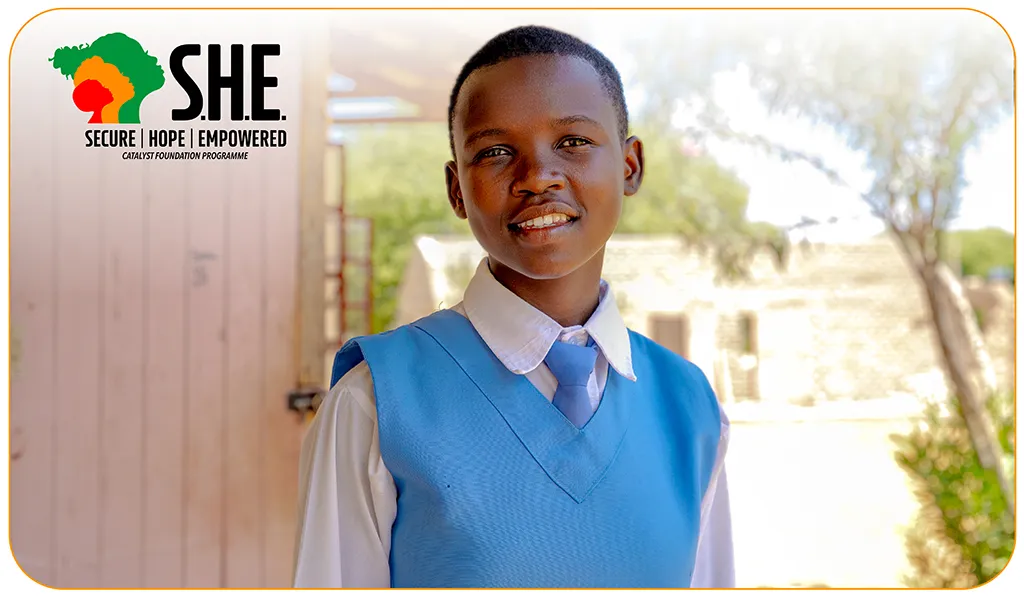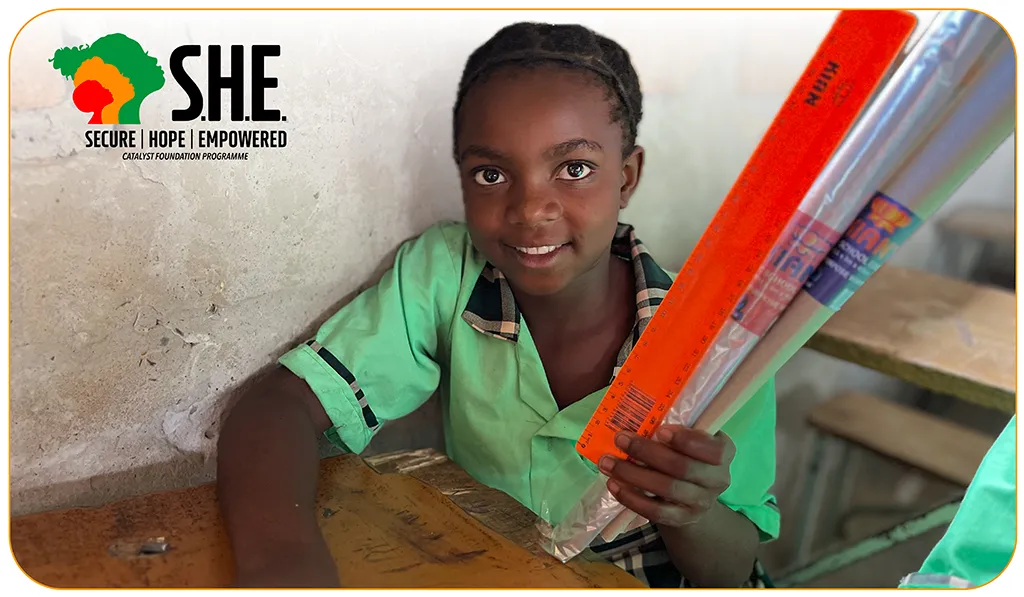Table of Contents
In the heart of rural Zimbabwe, we are making strides to empower vulnerable girls living in marginalised communities. Through our S.H.E. (Secure, Hope, Empowered) Programme, we are committed to breaking down barriers and providing opportunities for these girls to unlock their full potential.
As part of our bespoke support provided to the schools we work with, we have launched a transformative Music Programme led by the talented Thembani Mhambi. With certifications from the European Suzuki Association and years of experience teaching music in Zimbabwe, Thembani brings unmatched expertise and dedication to our innovative music initiative.
In this blog, we will explore the objectives of our new music programme, the benefits it brings to the learners, and the profound impact that learning these new skills has on their education and overall well-being.
Objectives of our new Music Programme
Our new Music Programme implemented has three primary objectives:
- Enhancing Academic Performance: By integrating music education into the curriculum, the programme aims to improve academic outcomes for learners. Research has shown that learning music stimulates cognitive development, enhances concentration, and strengthens memory skills. By engaging in musical activities, learners can develop vital cognitive abilities that positively influence their overall academic performance.
- Fostering Creativity and Self-Expression: The Music Programme encourages learners to explore their artistic side, fostering creativity and self-expression. By learning to play instruments, sing, and compose music, learners gain a creative outlet that boosts their confidence and allows them to express themselves in unique and powerful ways. This creative outlet becomes a medium for them to communicate their emotions, thoughts, and experiences.
- Building Life Skills and Self-Confidence: Through the Music Programme, learners develop a range of life skills that go beyond the realm of music. Learning to play an instrument requires discipline, perseverance, and teamwork. These qualities, along with the sense of accomplishment gained through mastering an instrument, contribute to building their self-confidence and resilience.
Benefits of our Music Programme
Our Music Programme aims to bring numerous benefits to the learners in rural Zimbabwe:
- Emotional Well-being: Engaging in music has a positive impact on emotional well-being. Music has the power to uplift spirits, reduce stress, and promote a sense of belonging and community. By immersing themselves in the world of music, learners find solace and inspiration, allowing them to navigate the challenges of their daily lives with greater resilience.
- Cultural Preservation and Appreciation: Music is deeply rooted in the cultural heritage of Zimbabwe. Through the Music Programme, learners develop an appreciation for their traditional music and instruments, ensuring the preservation of their cultural identity. This understanding fosters a sense of pride and connection to their roots.
- Social Integration: The Music Programme creates a space for learners to come together, collaborate, and form lasting friendships. By participating in group activities such as ensemble performances and choir rehearsals, learners learn the importance of teamwork, respect, and empathy. These social interactions contribute to their holistic development and help break down barriers within their communities.
- Improved Cognitive Skills: Numerous studies have shown that learning music has a positive impact on cognitive skills such as memory, attention span, and problem-solving abilities. These enhanced cognitive abilities translate into improved academic performance across various subjects.
- Enhanced Academic Performance: The integration of music education into the curriculum has proven to increase learner engagement and attendance rates. The excitement and joy that music brings to their lives motivate learners to be present in school and actively participate in their education.
Impact on Education
The impact of our Music Programme on the education of learners in rural Zimbabwe is profound:
- Cognitive Development: Learning music stimulates the brain and enhances cognitive abilities. Learners who engage in music education often exhibit improved memory, attention, and problem-solving skills. These cognitive benefits extend beyond music and positively influence their overall academic performance.
- Language and Literacy Skills: Music education involves reading musical notations, understanding lyrics, and interpreting rhythm and melody. These activities strengthen language and literacy skills, improving learners’ abilities to comprehend and interpret written information.
- Mathematical and Logical Thinking: Music is inherently mathematical, involving concepts such as counting beats, understanding rhythm, and recognising patterns. By learning music, learners develop a strong sense of mathematical and logical thinking, which can be applied to other subjects like mathematics and science.
- Cultural Appreciation and Global Awareness: Through the Music Programme, learners are exposed to a diverse range of musical genres and traditions from around the world. This exposure fosters cultural appreciation and global awareness, broadening their horizons and nurturing a sense of curiosity and open-mindedness.
- Self-Confidence and Personal Growth: Learning to play an instrument or perform in front of an audience requires courage and self-confidence. As learners progress in their musical journey, they gain a sense of accomplishment, boosting their self-esteem and belief in their abilities. This newfound confidence extends beyond music, empowering them to tackle challenges in other areas of their lives.
- Social and Emotional Development: Music is a powerful tool for emotional expression. Through music, learners can channel their emotions, find solace, and develop a deep sense of empathy. Collaborative music activities also promote teamwork, cooperation, and social integration, fostering healthy relationships and a sense of belonging within the community.
What to look forward to as we roll out our Music Programme
Our Music Programme strives to make a lasting impact on the education and well-being of vulnerable girls at the schools we support in rural Zimbabwe.
By integrating music education into the curriculum, this transformative initiative will enhance learners’ academic performance, foster creativity and self-expression, and build essential life skills.
Through our Music Programme, learners will experience emotional well-being, cultural preservation, social integration, and improved cognitive abilities. The power of music extends far beyond the classroom, providing these girls with the tools they need to unlock their full potential and shape a brighter future for themselves and their communities.



